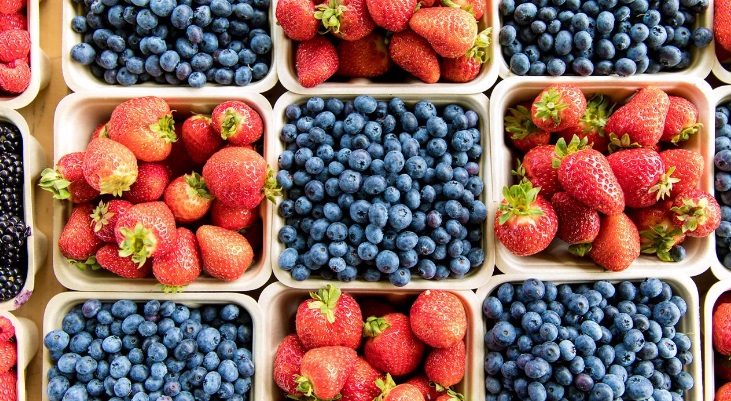Leafy green vegetables like kale, spinach, arugula, mustard greens, and Swiss chard are packed with nutrients that decrease inflammation, enhance immune function, and improve wound healing, making them the perfect choice to promote recovery.
Leafy greens are high in vitamin C, manganese, magnesium, folate, and provitamin A, all of which are essential for immune function and overall health
They’re also rich in polyphenol antioxidants that have powerful anti-inflammatory and immune-supportive properties
Following surgery, your body needs significantly more protein than the current Recommended Daily Allowance (RDA) of 0.36 grams per pound (0.8 grams per kg) of body weight.
The American Society for Enhanced Recovery recommends 0.7–0.9 grams of protein per pound (1.5–2 grams per kg) of body weight after surgery. That equals 105–135 grams for a 150-pound (68-kg) person.
Salmon is packed with protein, B vitamins, selenium, iron, zinc, and omega-3 fats
What’s more, studies show that its omega-3 fats may promote wound healing, enhance immune response, and reduce inflammation when taken in supplement form
Berries are brimming with nutrients and plant compounds that can help support your body’s recovery.
For instance, berries provide ample vitamin C, which promotes wound healing by stimulating the production of collagen — the most abundant protein in your body
They also pack antioxidants like anthocyanins, which are plant pigments that give berries their vibrant color, in addition to providing anti-inflammatory, antiviral, and immune-supporting effect
Nuts and seeds like almonds, pecans, walnuts, sunflower seeds, and hemp seeds are a great choice for fueling your body during the recovery process. These foods provide plant-based protein, healthy fats, and vitamins and minerals that support healing.
Specific amino acids, which are the building blocks of protein, play important roles in wound healing and immune function.
Organ meats are some of the most nutritious foods you can eat. They boast many immune-supportive nutrients, including vitamin A, iron, zinc, B vitamins, and copper, which is needed for the production of connective tissue and collagen
Cruciferous vegetables like cauliflower, broccoli, Brussels sprouts, and kale are well known for their impressive health benefits. They may support recovery thanks to their wide variety of vitamins, minerals, and antioxidants.
oysters, mussels, and clams are loaded with nutrients — especially zinc — that may promote recovery.
Zinc is crucial for healthy immune function. This mineral may also help speed recovery and promote wound healing, making shellfish great for recuperating from surgery
Eating healthy high carb foods, such as sweet potatoes, is important for recovery. Carbs not only provide the energy your cells require for healing but also enzymes like hexokinase and citrate synthase, which aid wound repair


















.webp)






